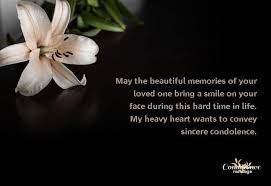Chevy Chase was wrong. The Grand Canyon.
The Grand Canyon I expected to feel some mild version of that Chevy Chase scene in Vacation. I mean not entirely pre-jaded, but prepared to smile, nod and check her…
New Year Resolutions? Go Small. Three Things to Add to 2024.
Years ago I swore off making one single day the starting line for when to begin a new habit, or drop an old one. I figure any day is fine.…
Three things to make your holiday FEEL better
Holidays make lot of us giddy. The lights, decorations and excited kids drunk on all the magic. I love this time of year. My daughter is grown but I still…
Broken crosses: Two local religious leaders who broke my heart
The reverend asked us to call him Bryan, but some people called him “Rev.” He was a regular visiting minister at my lay led Unitarian Universalist church. Wildly popular, burly…
10 things to tell yourself when you’re going through a hard time.
From Tiny Buddha (I love this site). Every point hit home for me. But oddly enough, number two stood out because at first glance, it sounded kind of selfish. You…
My interview on Mother Plus Podcast
Ambivalence in motherhood. Part 1: When you're a "different" kind of mom What happens when you feel like a "different kind of mom?" Despite feeling grateful to be at home…
I love, I hate. Peace after accepting ambivalence.
All mothers know this. That the love we have for our child is so intense and all-consuming that it's spectacular and terrifying in its power. Yet it's rare we admit…
Condolences that hurt
I just listened to Marc Maron’s WTF podcast where he interviewed Nicole Byer (both are comedians, actors, podcasters). Marc asked Nicole when her parents passed away. Both were in their mid-50’s. Like…
What my sociopath boss taught me at 22
Signs of a sociopath When I was 22, a year after working my first after-college job as a market research analyst, I moved to live with my serious boyfriend. For…
“Bed alarm” – a poem in my father’s voice
Published on the Feminine Collective I don’t tremble, but they assume I’m Katherine Hepburn’s kind.We share our Parkinson’s frozen mask, expressionless, involuntarydeceit of emotion. My shuffling gait halts while I…









